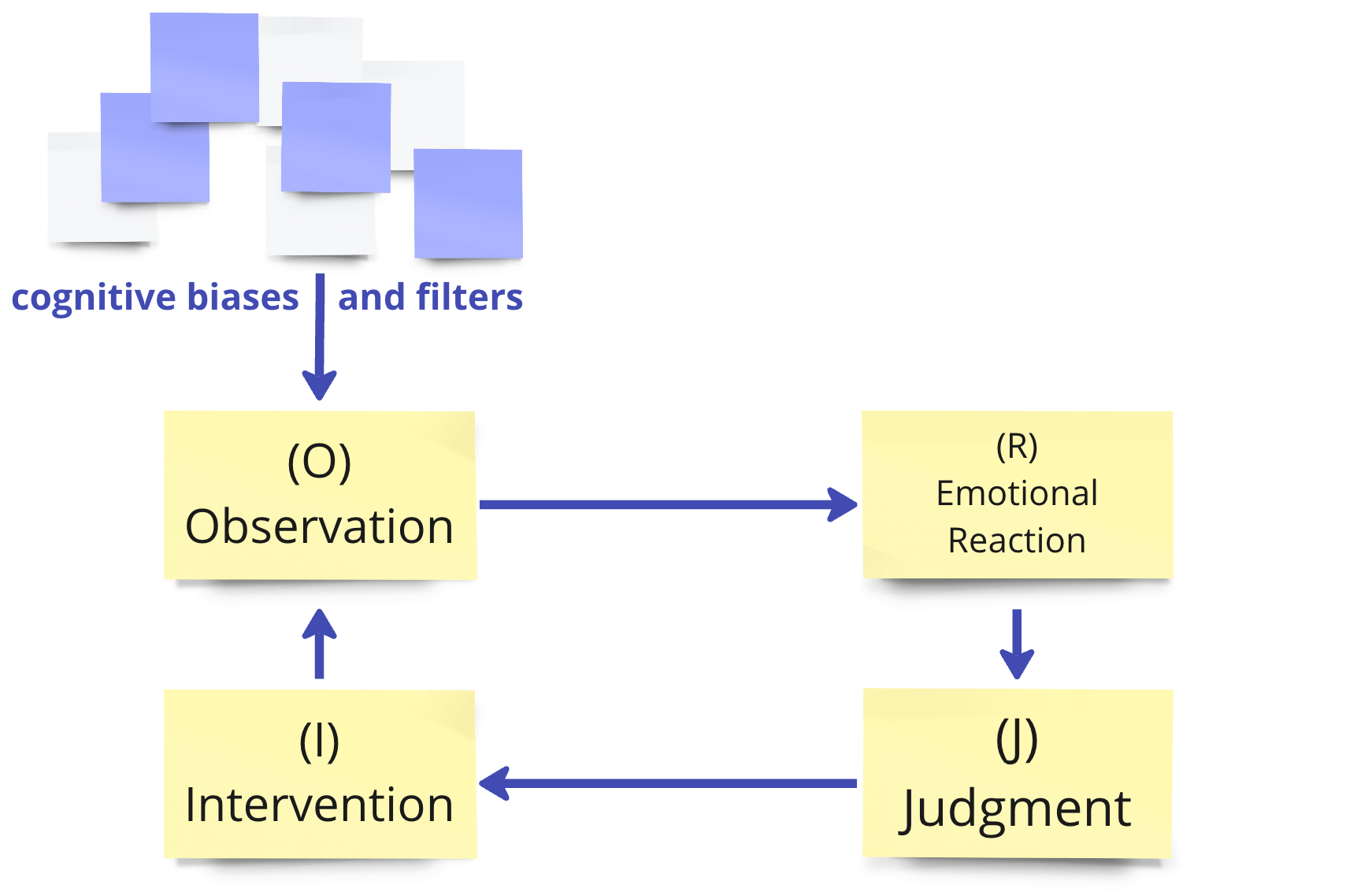Here is the story of Bob and his coworker Lisa. They are both having a session around a whiteboard to share their context and make some decision. One post-it caught Lisa's attention, who genuinely asked what it was about.
- Lisa: "What is that note is about? Why do we have this here?"
- Bob: "Hey! I wrote this. Are you saying that my ideas are useless?"
- Lisa: "That's not what I meant! Why are you so aggressive suddenly?"
- Bob: "You are always disregarding my contributions! I can't continue in these conditions!"
So, what happened there?
- Good intention, awkward question
- Emotional reaction, with a hasty judgment
- A missed opportunity to build something together
In various aspects of life, we encounter situations that demand deep consideration, and thoughtful actions. Yet, human brain is filled with filters and biases that limit our understanding of the world, and lead us to misjudgments and possibly not very memorable interactions with colleagues, friends, or family.
"We can only see what we are able to think and talk about."
Edgar H. Schein's ORJI model is a framework that describes a person's internal thought processes, and provides a basis for developing mindfulness and guiding reflection. As an individuals, leader, team member, or facilitator, using the ORJI model can help us face challenging situations and build healthier relationships.

Observe - The Power of Awareness
Being aware of the situation is fundamental to making informed decisions. Take the time to gather relevant data, explore different perspectives, and understand the context fully. Whether it's a personal dilemma or a professional challenge, observing with an open mind allows you to identify critical factors that influence the situation.
React - Embracing Emotional Intelligence
Reacting involves acknowledging and processing your emotional responses to the observed information. Emotions play a significant role in decision-making, and recognizing your feelings can help you make more balanced choices. Being self-aware and understanding how emotions can impact judgment enables you to approach the situation with clarity and rationality.
Judge - Making Informed Assessments
Once you have observed and understood your emotional reactions, the judging phase begins. In this stage, evaluate the information you have gathered and analyze it objectively. Be mindful of biases and assumptions that may cloud your judgment. A comprehensive assessment empowers you to separate relevant data from noise and determine the potential consequences of different decisions.
Intervene - Taking Decisive Action
The final stage of the ORJI model is intervention. Here, you translate your observations, emotional awareness, and judgments into action. Decisiveness is crucial, as delaying action may lead to missed opportunities or worsening situations. Choose the most appropriate course of action based on your assessments and take steps towards a solution.
In the book, Humble Inquiry, Edgar H. Schein couples the ORJI model with “the fine art of drawing someone out, of asking questions to which you do not know the answer, of building a relationship based on curiosity and interest in the other person”. I recommend a read on this book, as it also offers advice and practical exercises for overcoming the cultural, organizational, and psychological barriers that keep us from practicing mindfulness, curiosity, humility, and build safer organizations.

